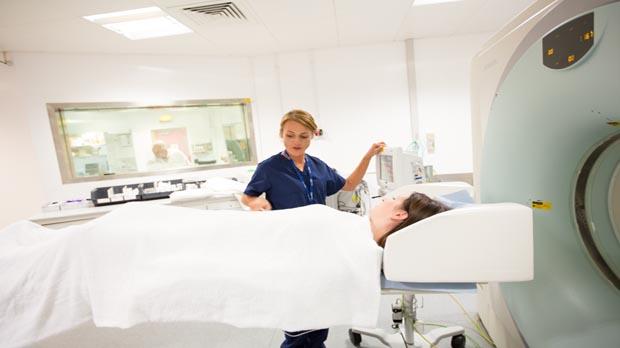
Last year in the UK over 60,000 cancer patients enrolled on clinical trials aimed at improving cancer treatments and making them available to all.
Please note - this trial is no longer recruiting patients. We hope to add results when they are available.
This study is looking to see if things such as your sex, stage of physical development, height and weight affect how your body processes a drug called doxorubicin. We use the term ‘you’ in this summary, but of course if you are a parent, we are referring to your child.
If you have chemotherapy your doctor usually works out the dose using your weight and height. But, because everybody is different, the way the cancer drugs are processed in the body will be different for each person. This may change levels of the drug in the body, side effects it causes and how well the drug works.
Researchers in this study are looking at people with osteosarcoma, a group of cancers called Ewing’s tumours or Hodgkin lymphoma. There is some proof that that there is a difference between males and females in how well chemotherapy works for these cancers. These cancers mainly affect young people, many of whom are going through physical changes as they grow into adults.
The researchers will look at the chemotherapy drug doxorubicin in people having this as part of their  , and measure its levels and effects.
, and measure its levels and effects.
The aim of this study is to find out if your sex, stage of development into an adult, height and weight can affect the way your body processes doxorubicin. You will not have any direct benefit from taking part in this study. But the results of the study will be used to help people with these cancers in the future.
You may be able to enter this study if you
You cannot enter this study if
This study will recruit up to 210 people. You give a blood sample for the study
Each sample will be no more than one and a half tablespoons. You have the blood samples taken from a central line if you have one. If you don’t, the team will put a small tube into a vein in your arm or hand to take the blood, so you don’t have to have a needle each time.
The team will also look at results of CT scans, MRI scans, blood tests and physical examinations you have as part of your standard treatment. They want to find out how doxorubicin affects your body and your cancer.
Before you join the study you will see the doctor and have some tests. These include
 )
)Most of these tests will happen when you are already at hospital for your treatment appointments. But you may need to come once or twice for the study.
You may have a small bruise if you have a tube put in for your blood samples. You may be able to have to cream on your skin to numb the area before you have the tube put in.
You will get a very small amount of radiation from the wrist X-ray and DEXA scan. But because the dose is so small, the team do not think that this will cause you any problems.
The common side effects of doxorubicin include
Please note: In order to join a trial you will need to discuss it with your doctor, unless otherwise specified.
Dr Beatrice Seddon
Australasian Sarcoma Study Group
Comprehensive Local Research Network
Experimental Cancer Medicine Centre (ECMC)
University College London Hospitals NHS Foundation Trust
If you have questions about the trial please contact our cancer information nurses
Freephone 0808 800 4040

Last year in the UK over 60,000 cancer patients enrolled on clinical trials aimed at improving cancer treatments and making them available to all.